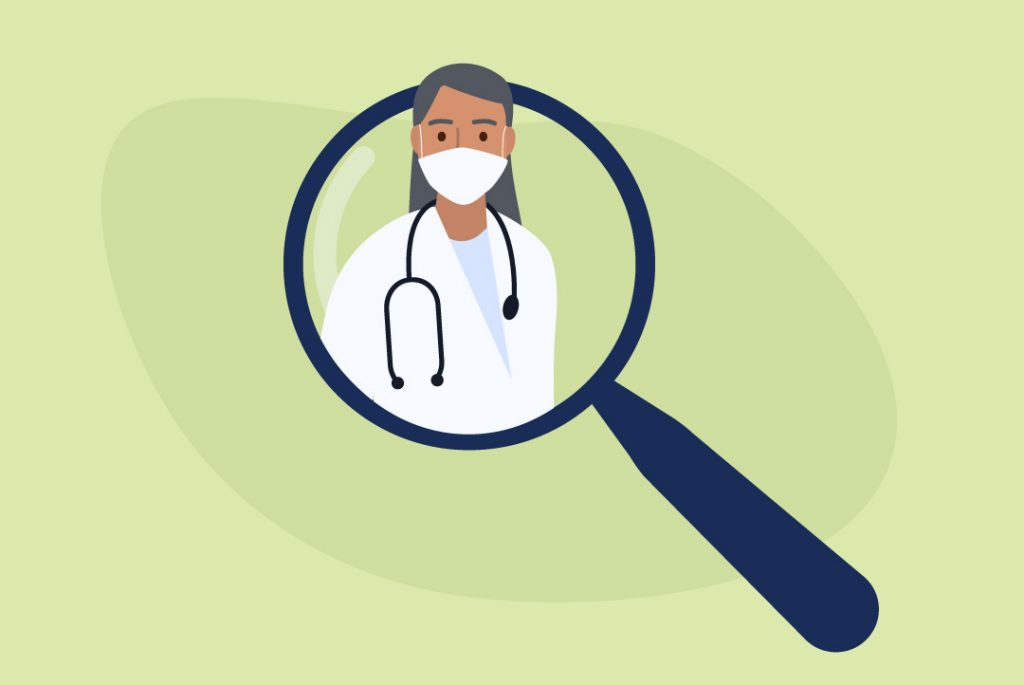LEARN THE BASICS
JUNE 2022
Do you need a primary care physician?
When it comes to your health, few relationships are more important than the one you have with your primary care physician (PCP). A long-term relationship with a PCP keeps you healthier. They are typically the first to treat any health problems that arise. A PCP can teach you how to lead a healthier life, provide needed medications, screen for disease and recommend specialists when you need them. They’re your health care partner.
Looking for more? Find other articles below

What does a PCP do?
PCPs, also called general practitioners, cover all types of everyday health concerns. They can answer questions about infections, chronic conditions or medicines. With regular visits, such as annual health checkups, your PCP will get to know much about you:
- Your current health
- Your medical history
- Your family’s medical history
- Your treatment preferences and daily challenges
- Your personality and lifestyle
What can a PCP do at checkups?
Your overall health is affected by your personal health history, family health history and lifestyle. A PCP will consider those factors and then:
- Teach you ways to make better decisions about your health to prevent disease. For example, your PCP can guide your efforts to eat more nutritious foods, manage stress or quit smoking.
- Make sure your vaccines are up to date to prevent illnesses like the flu.
- Suggest screening tests to detect problems before you even notice them (like a mammogram for breast cancer).
- Treat health problems that pop up (such as a rash or an infection).
- Help you manage long-term health problems (for instance, diabetes, high blood pressure or depression).
- Find a medical specialist if you need one (like a knee surgeon or a heart doctor).
How can a PCP help me?
PCPs catch potential health problems early, before they become severe. People who have a PCP spend less time in the hospital and less money on medical costs in the long run. According to a recent study in JAMA Internal Medicine, adult patients with a PCP were far more likely to receive high-value care such as cancer screenings, including colorectal cancer screening and mammography, than people without a PCP.
They give you complete care throughout your lifetime and will also know when you need more advanced care, such as a hospital procedure or a specialist.
Are there different kinds of PCPs?
Many types of health care providers offer primary care. Different specialists are trained to see certain types of patients:
- Family practitioners (also known as family doctors) see patients of all ages, sometimes everyone in a family.
- Pediatricians care for children and teenagers.
- Internists, or internal medicine doctors, see only adults.
- Geriatricians care for older people.
- Obstetricians and gynecologists focus on women’s health and pregnancy.
- Nurse practitioners and physician assistants also provide primary care. But they must serve as part of a team that includes a primary care physician, and the physician has overall responsibility for the patient.
How do I find a PCP?
To be comfortable and develop a long-term relationship, it’s important to find a PCP who is qualified, fits your personality and accepts your insurance plan. Many strategies can help you identify the right provider:
- Find an in-network PCP using your Costco benefits search tool (see resources below).
- Talk to people you trust, such as family members, friends and neighbors.
- Ask other health care professionals you know, such as your dentist, a nurse or another doctor.
- Search an online national directory of health care providers. (Organizations like the American Board of Family Medicine offer such directories.)
How do I choose a PCP?
When you’re choosing a PCP, try to schedule an interview to get to know them. Here are some questions you can ask to help you decide if the person is a good fit for your personality, lifestyle and needs:
- What are your qualifications?
- Are you certified in primary care?
- Do you focus on disease prevention or treatment?
- Do you have a more conservative, or more aggressive, approach to treatment?
- How do you decide when a patient needs a specialist?
- How do you like to communicate (in person, by phone, by email)?
- Whom would I talk to when you’re on vacation?
You also may want to consider the PCP’s overall office setting and the staff at the PCP’s office:
- What are the office hours?
- How long does it usually take to get an appointment?
- Does the office do lab tests onsite or nearby?
- Are the staff members friendly?
- Do staff members respond to calls quickly?
Find a PCP who meets your needs with help from your Costco benefits, as described in the resources below.
Source: The Cleveland Clinic. The importance of having a primary care doctor.
Resources for you
Need help finding a primary care physician? For help finding an in-network provider, visit Coscobenefits.com and click “Find a Provider” under What If I. You can also visit aetna.com, download the Aetna HealthSM app or call your Aetna Health Concierge at 800-814-3543 (TTY: 711). An Aetna Health Concierge can also help you find a provider who’s accepting new patients and assist with scheduling your first appointment.
Need help finding an in-network primary care physician? Visit Costcobenefits.com and click “Find a Provider” under What If I. You can also call Triple-S at 800-981-3241.
Need help finding an in-network primary care physician? Visit Costcobenefits.com and click “Find a Provider” under What If I. You can also call HMSA at 800-776-4672 or visit HMSA.com.

